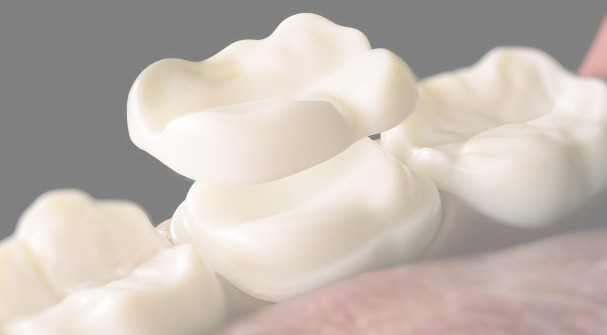FAQ About Cracked Teeth and Crowns

Crowns have emerged as an indispensable solution in the vast landscape of dental treatment, addressing a myriad of issues that can affect our teeth, particularly as we age. From craze lines to fractures, crowns play a pivotal role in preserving our natural teeth. Let's explore some frequently asked questions about cracked teeth and crowns, shedding light on the nuances of dental care.
Do Crowns Work on Cracked Teeth?
Crowns are a formidable solution for treating various types of cracked teeth. Acting as a protective shield, they safeguard the natural tooth, especially around the gum line, preventing the crack from expanding further. This comprehensive treatment helps preserve the layers of the tooth and ensures both its functionality and aesthetics.
Can You Put a Crown on a Cracked Tooth Without a Root Canal?
In certain cases, a crown can be placed on a cracked tooth without necessitating a root canal. This is particularly applicable when the crack has not penetrated the inner layers of the tooth, reaching the dental pulp. However, when the crack poses a risk of dental trauma or damage to the tooth enamel, a root canal may be recommended as part of the treatment for a cracked tooth.
What Is the Alternative to a Crown for a Cracked Tooth?
While crowns are a robust option, dental bonding or veneers may serve as alternatives for less severe cracks. However, it's crucial to note that these options may not provide the same level of protection, especially for fractures that extend to the gum line or affect the natural tooth's structural integrity.
How Urgent Is a Cracked Crown?
Addressing a cracked crown promptly is of paramount importance. A cracked crown can expose the natural tooth to potential fractures or a broken tooth, necessitating urgent dental care. Symptoms of a cracked crown, such as heightened sensitivity or discomfort, should not be ignored, as they may indicate underlying issues that require immediate attention.
Do Cracked Teeth Heal On Their Own?
Unfortunately, a cracked tooth can’t naturally heal on its own. That being said, it's never too late to treat a cracked tooth with a dental crown. If the damaged tooth is structurally sound or even part of the tooth is structurally sound and the surrounding tissues are healthy, there is hope for saving the whole tooth. Even if a tooth has minor cracks, a crown can still be a viable option to prevent further damage. Regular dental check-ups can help detect issues early, ensuring timely intervention.
Can a Badly Cracked Tooth Be Saved?
The prognosis for a badly cracked tooth depends on the nature of the dental trauma and the extent of the damage. Fortunately, with appropriate treatment, a cracked tooth can heal. Whether it's a fractured cusp or a split tooth, dental interventions such as crowns or dental implants can offer viable solutions to save the natural tooth.
Ready to Transform Your Smile?
If you're grappling with the symptoms of a cracked tooth or exploring dental treatment options for various types of cracked teeth, Excellence in Dentistry is here to guide you. Our specialized team excels in dental implants and crowns, offering comprehensive solutions tailored to your unique needs. Don't let dental trauma compromise your oral health—schedule your appointment with us today.
